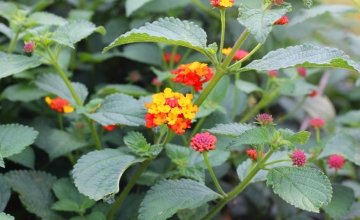
Read our 2023 annual report

Knowledge Hub
Malaria prevention in Tanzania

In Tanzania, Concern Worldwide has learned that a locally available plant can help aid malaria prevention. By planting these around homes, people's lives are now being saved.
Fighting Malaria
This plant, called lantana camara, grows in much of sub-Saharan Africa and is a natural mosquito repellent. Our research team, led by Frank Mng’ong’o and Joseph Sambali, together with the Tanzania-based Ifakara Health Institute, planted lantana camara around 231 houses. They then measured the number of mosquitoes inside people’s homes.
What we found was remarkable: the houses with lantana camara had 56% fewer anopheles gambiae and 83% fewer anopheles funestus, the two most common malaria-carrying mosquitoes in Africa.
Concern's James Davey said:
Because it’s a plant, people who are smallholder farmers are very comfortable managing it. They can, with their own resources, have something that helps them fight against malaria and keeps the mosquito populations down.
Helping families
Family after family told us the same thing: there are fewer mosquitoes in their house because of lantana camara and, most importantly, they now rarely get malaria.
John Elfast first planted it around his house, where he lives with his wife and four children. He said:
Since we planted lantana, we no longer suffer from malaria. None of [our] kids have been sick since we planted lantana. It’s not only kids, but me and my wife too.
Before and after
John's neighbour, Peruthi Eliasha has lantana camara growing so high it nearly covers her windows. She said:
I love it. [Before we had lantana], the kids had malaria at least two times a year and we would have to take the children to the hospital, which is a long walk. Since June of last year, no one in my family has had malaria.
Follow Concern
Keep up to date with all of our work by following us on Instagram.


